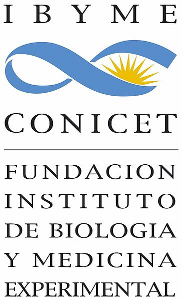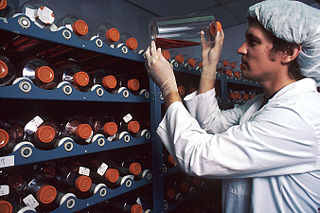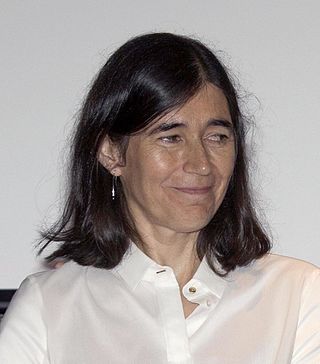
The American Society for Microbiology (ASM), originally the Society of American Bacteriologists, is a professional organization for scientists who study viruses, bacteria, fungi, algae, and protozoa as well as other aspects of microbiology. It was founded in 1899. The Society publishes a variety of scientific journals, textbooks, and other educational materials related to microbiology and infectious diseases. ASM organizes annual meetings, as well as workshops and professional development opportunities for its members.
The National Cancer Institute (NCI) coordinates the United States National Cancer Program and is part of the National Institutes of Health (NIH), which is one of eleven agencies that are part of the U.S. Department of Health and Human Services. The NCI conducts and supports research, training, health information dissemination, and other activities related to the causes, prevention, diagnosis, and treatment of cancer; the supportive care of cancer patients and their families; and cancer survivorship.

Scripps Research is a nonprofit American medical research facility that focuses on research and education in the biomedical sciences. Headquartered in San Diego, California, the institute has over 170 laboratories employing 2,100 scientists, technicians, graduate students, and administrative and other staff.

The Experimental Medicine and Biology Institute is a research and development centre affiliated to the University of Buenos Aires, in Buenos Aires, Argentina.

The University of North Texas Health Science Center at Fort Worth – HSC, Health Science Center, Health Science Center at Fort Worth – is an academic health science center in Fort Worth, Texas. It is part of the University of North Texas System and was founded in 1970 as the Texas College of Osteopathic Medicine, with its first cohort graduating in 1974. The Health Science Center consists of six schools with a total enrollment of 2,338 students (2022-23).

Medical research, also known as health research, refers to the process of using scientific methods with the aim to produce knowledge about human diseases, the prevention and treatment of illness, and the promotion of health.
The Spanish National Bioinformatics Institute is an academic service institution tasked with the coordination, integration and development of bioinformatics resources in Spain. Created in 2003, the INB is—since 2015—the main node through which the Carlos III Health Institute is connected to ELIXIR, a European-wide infrastructure of life science data, coordinating the other Spanish institutions partaking in the initiative such as the Spanish National Cancer Research Centre (CNIO), the Centre for Genomic Regulation (CRG), the Universitat Pompeu Fabra, the Institute for Research in Biomedicine (IRB) and the Barcelona's National Supercomputing Center.
The Kolling Institute is located in the grounds of the Royal North Shore Hospital in St Leonards, Sydney Australia. The institute, founded in 1920, is the oldest medical research institute in New South Wales.
The Pennington Biomedical Research Center is a health science-focused research center in Baton Rouge, Louisiana. It is part of the Louisiana State University System and conducts clinical, basic, and population science research. It is the largest academically-based nutrition research center in the world, with the greatest number of obesity researchers on faculty. The center's over 500 employees occupy several buildings on the 222-acre (0.90 km2) campus. The center was designed by the Baton Rouge architect John Desmond.

The Centre for Neuroscience and Cell Biology (CNC) is a nonprofit research institute founded in 1990, aiming to foster research in biomedicine and biotechnology and multidisciplinary graduate teaching at the University of Coimbra. CNC was the first established “Laboratório Associado” in Portugal, and it has steadily increased the scope of scientific competences over the years, with a strong focus on the exploitation of the fundamental mechanisms of ageing and brain diseases.
The Society for Immunotherapy of Cancer (SITC), previously known as the International Society for Biological Therapy of Cancer (iSBTc), is a professional society of scientists, academicians, researchers, clinicians, government representatives, and industry leaders from around the world dedicated to improving outcomes in patients with cancer by advancing the science and application of cancer immunotherapy. Currently, SITC has more than 2,400 members, representing 22 medical specialties from 42 countries around the world, who are engaged in the research and treatment of cancer.
Carlos Martínez Alonso, was born in Villasimpliz, in the province of León, on January 9, 1950. In 1974 he obtained a chemistry degree from the Universidad Complutense of Madrid. Four years later, in 1978, he obtained a Ph.D. in immunology by the same university. He was appointed President of the Spanish National Research Council (CSIC) from 2004 to 2008, and Secretary of State for Research in the Ministry of Science and Innovation from early 2008 to December 2009.
Translational research is research aimed at translating (converting) results in basic research into results that directly benefit humans. The term is used in science and technology, especially in biology and medical science. As such, translational research forms a subset of applied research.
The National Center for Advancing Translational Sciences (NCATS) was established on December 23, 2011 and is located in Bethesda, Maryland. NCATS is one of 27 institutes and centers of the U.S. National Institutes of Health (NIH), an agency of the U.S. Department of Health and Human Services. The mission of NCATS is to transform scientific discoveries into new treatments and cures for disease that can be delivered faster to patients. The budget provided to NCATS for fiscal year 2018 is $557,373,000.
Basic research, also called pure research, fundamental research, basic science, or pure science, is a type of scientific research with the aim of improving scientific theories for better understanding and prediction of natural or other phenomena. In contrast, applied research uses scientific theories to develop technology or techniques, which can be used to intervene and alter natural or other phenomena. Though often driven simply by curiosity, basic research often fuels the technological innovations of applied science. The two aims are often practiced simultaneously in coordinated research and development.

María Antonia Blasco Marhuenda, known as María Blasco, is a Spanish molecular biologist. She was the director of the Spanish National Cancer Research Centre from June 22, 2011 to January 29, 2025.

The Institute of Pharmacology and Structural Biology is a research center run as a collaboration between the French National Centre for Scientific Research and Paul Sabatier University. It has a scientific and administrative staff of 260 people, including a large number of postdoctoral workers and postgraduate students. The primary objective of the institute is the identification and characterization of novel therapeutic targets in the fields of cancer and infectious diseases.
Institute for Medical Research, Israel-Canada (IMRIC) is a research institute affiliated with the Faculty of Medicine of the Hebrew University of Jerusalem.
Shenzhen International BT Leadership Summit is a biology-focused business conference. It is held each year in September. It is arranged by the Shenzhen Municipal People's Government. It is held at the Shenzhen Convention and Exhibition Center.

Science and technology in Spain relates to the set of policies, plans and programs carried out by the Spanish Ministry of Science and Innovation and other organizations aimed at research, development and innovation (R&D&I), as well as the reinforcement Spanish scientific and technological infrastructures and facilities such as universities and commercial laboratories.









